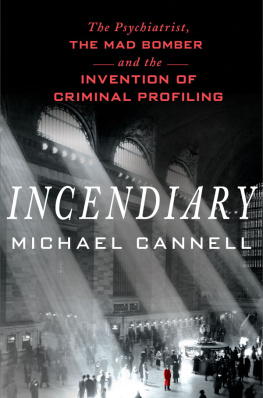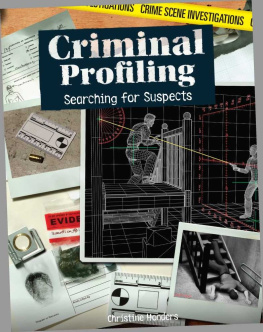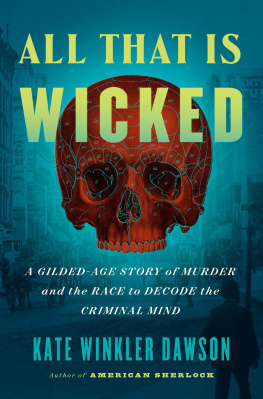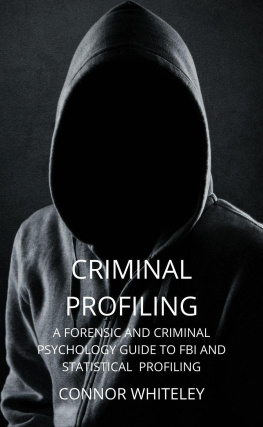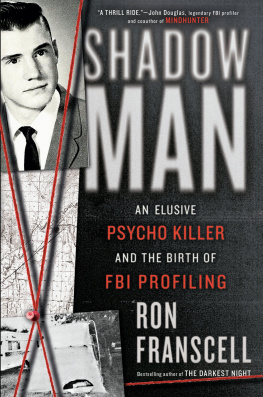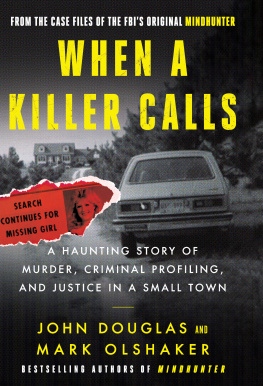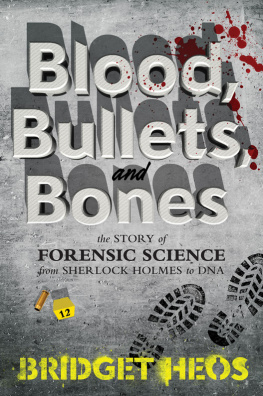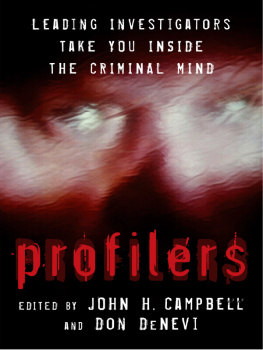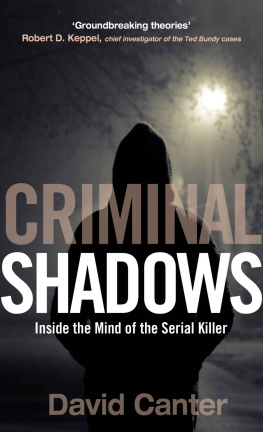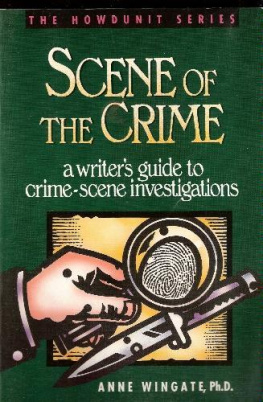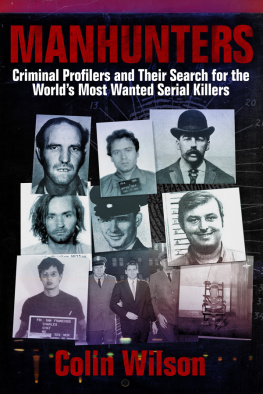

Thank you for buying this
St. Martins Press ebook.
To receive special offers, bonus content,
and info on new releases and other great reads,
sign up for our newsletters.

Or visit us online at
us.macmillan.com/newslettersignup
For email updates on the author, click here.
The author and publisher have provided this e-book to you for your personal use only. You may not make this e-book publicly available in any way. Copyright infringement is against the law. If you believe the copy of this e-book you are reading infringes on the authors copyright, please notify the publisher at: us.macmillanusa.com/piracy.
This is a book about madnessmadness and gunpowder.
In these pages lives a serial bomber, a paranoid schizophrenic who, for a long, harrowing stretch of the 1950s, convulsed New York with dread. The nearly three dozen homemade explosives he set off in public places brought into being a culture of fear more than four decades before terrorism became an American fixation. He embodied everything unnerving about the years W. H. Auden called the age of anxiety. Whatever cruelty they inflicted, the centurys two great wars were at least fathomable. The bomber was not. He was like a dream distortion of postwar disquietunhinged, unrelenting, perpetually hidden in city shadows.
The bomber had a rightful grievance against an uncaring employer. His resentment transmogrified into a consuming rage. The venom spouted from a dark psychic hole where logic does not go. I correct myself: where normal logic does not go. Schizophrenics follow their own logic. We just dont understand it.
The NYPD certainly didnt understand it. The famously tough-minded New York detectives stumbled and fumbled, as a harassing band of newspaper reporters detailed at every turn. For more than a century the police had relied on muscle and shoe leather to collar bad guys. The street corner respected the billy club, and that was that. But the reliable strong-arm methods proved useless in the face of a schizophrenic serial bomber. Seldom in the history of New York, wrote the Associated Press, has a case proved such a torment to police.
The bombers rampage came at a time when science was transforming the way Americans thought about the world around them. Jonas Salk came up with the polio vaccine, eradicating a disease that had crippled hundreds of thousands. Bell Labs paved the way for modern electronics, and all that came with it, by inventing the silicon transistor. Physicist Edward Teller created the hydrogen bomb.
Scientific advancements, however, did not elevate policing, at least not in New York. The NYPDs corrupt precinct captains and stubborn commanders resisted new methods promoted by college-educated criminologistsuntil the serial bomber forced them to adapt. With the manhunt reaching critical urgency, the police took the unprecedented step of asking a psychiatrist what the forensic evidence revealed about the bombers troubled inner life. What strange sort of person was he, and what wounding life experience led to his murderous avocation? In other words, they asked the psychiatrist to invent a new criminal science, one that would peer into the mind of the bomber. The term profiling would not be coined for another two decades.
Until then the only investigators who had drawn portraits of a criminals emotional history existed in the stories of Edgar Allan Poe and Sir Arthur Conan Doyle. Sherlock Holmes could size up the evidence and bring blackmailers and assassins to mind with photographic precision. Could a psychiatrist do the same in real life? Could life imitate a murder mystery?
Today art mostly imitates life. Television and movies have so inundated us with fictional accounts of profiling that we easily lose sight of what a breakthrough it was in 1957. Every one of todays profilers, real or televised, traces his or her lineage back to the psychiatrist who depicted the serial bomber with uncanny accuracy.
What follows is an account of profilings beginnings. Everything in these pages is true, including the quotations (though the bombers thoughts are speculation). Like any resonant story it contains at its heart an unanswerable question: Can science alone grasp the intricacies of the human mind, or does true understanding require the reverberative powers of intuition? How does one apprehend the wits of a madman?
These questions gripped me as I worked on this book over the past three years. Along the way I came to understand that to write about madness is to write about ones self, however obliquely.
The virtuous man is content to dream what a wicked man really does.
P LATO
Everybody has a hunch occasionally.
D R. J AMES B RUSSEL
December 1956
Shortly after lunch on a cold December morning in 1956, a trio of New York City detectives stepped out the back door of the copper-domed police headquarters looming like a dirty gray temple above the tenements and trattorias of Little Italy. Across the street, half-shrouded in winter shadow, a revolver-shaped sign hung outside John Jovinos, the oldest gun store in the city, if not the country, where patrolmen bought the .38 Specials slung on their hips. Directly above Jovinos hung a fire escape where Weegee, the dean of tabloid photographers, perched with his boxy black Graflex flashbulb camera for choice views of handcuffed mobsters and murderers dragged in for booking. Down the block, on the corner of Grand Street, was a German restaurant called Headquarters. Under its carved mahogany ceiling, at a lengthy oak bar, the top brass took their off-duty rye and beer. Officers requiring discretion could enter the bar through an underground tunnel.
Today the three detectives had no time for such distractions. Led by a veteran captain, Howard Finney, they walked briskly to an unmarked police cruiser, a big green-and-white Plymouth, idling at the curb, and drove south through the winding downtown streets on an urgent errand.
Four days earlier a bomb had exploded during a showing of War and Peace at the Paramount movie palace on Flatbush Avenue, in Brooklyn. At 7:55 p.m., as an audience of fifteen hundred gazed up at a St. Petersburg drawing room rendered in saturated Technicolor reds and blues, a thundering detonation flashed from orchestra row GG, followed by billows of ashen smoke. For an instant the air rang with shock, like the hushed moment after a window shatters. Then screams filled the theaterscreams of pain, panic, and fright as moviegoers glimpsed faces and scalps scythed open by shrapnel. The audience sprang to its feet, like worshippers rising in unison for a hymn, and pressed hard for exits, leaving behind six injured. Above them the glimmering loveliness of Audrey Hepburn in ball gown and tiara waltzed on under the soft blue eyes of Henry Fonda.
The Paramount blast was not an isolated event. Any New Yorker who read newspapers knew that for sixteen years the police had searched for a serial bomber who identified himself only as F.P. He had planted thirty-two homemade explosives in the citys most crowded public spacestheaters, terminals, subway stations, a bus depot, and a libraryinjuring fifteen. He timed most of the devices to go off shortly after 5:00 p.m., the height of rush hour.
F.P. had yet to kill, but it was only a matter of time. The New York Journal-American, an afternoon newspaper of scrappy disposition, called him the greatest individual menace New York City ever faced. The capture of a bomb-building psycho with an insatiable, unreasoned grievance, the newspaper said, was the most agonizing challenge of modern times.
Next page
